This article needs additional citations for verification .(October 2012) |

Richard Constant Boer (31 January 1863, Warnsveld - 20 August 1929, Amsterdam) was a Dutch linguist who specialized in Old Norse.
This article needs additional citations for verification .(October 2012) |

Richard Constant Boer (31 January 1863, Warnsveld - 20 August 1929, Amsterdam) was a Dutch linguist who specialized in Old Norse.
Boer received his Ph.D. in 1888 from the University of Groningen for his edition of Örvar-Odds saga. From 1888 to 1900, he taught Dutch and geography at the gymnasium in Leeuwarden. He was also a professor of Old Norse at Groningen from 1894 to 1900, and after 1900, professor of Old Germanic and Sanskrit at the University of Amsterdam.
In 1921, the study of Scandinavian languages was officially established at the University of Amsterdam. R.C. Boer maintained his focus on Old Norse and Old Norse literature, and in the 1920s, his teaching extended to the modern Scandinavian languages (Danish, Norwegian, and Swedish) and their literature.

The Poetic Edda is the modern name for an untitled collection of Old Norse anonymous narrative poems, which is distinct from the Prose Edda written by Snorri Sturluson. Several versions exist, all primarily of text from the Icelandic medieval manuscript known as the Codex Regius, which contains 31 poems. The Codex Regius is arguably the most important extant source on Norse mythology and Germanic heroic legends. Since the early 19th century, it has had a powerful influence on Scandinavian literature, not only through its stories, but also through the visionary force and the dramatic quality of many of the poems. It has also been an inspiration for later innovations in poetic meter, particularly in Nordic languages, with its use of terse, stress-based metrical schemes that lack final rhymes, instead focusing on alliterative devices and strongly concentrated imagery. Poets who have acknowledged their debt to the Codex Regius include Vilhelm Ekelund, August Strindberg, J. R. R. Tolkien, Ezra Pound, Jorge Luis Borges, and Karin Boye.

Örvar-Oddr is a legendary hero about whom an anonymous Icelander wrote a fornaldarsaga in the latter part of the 13th century. Örvar-Odds saga, the Saga of Örvar-Odd, became very popular and contains old legends and songs. He also appears in Hervarar saga and, concerning the battle on Samsø, in Gesta Danorum.

Hjalmar and Ingeborg were a legendary Swedish duo. The male protagonist Hjalmar and his duel for Ingeborg figures in the Hervarar saga and in Orvar-Odd's saga, as well as in Gesta Danorum, Lay of Hyndla and a number of Faroese ballads. Hjalmar never lost a battle until meeting a berserker wielding the cursed sword Tyrfing.
Narfi, also Nörfi, Nari or Nörr, is a jötunn in Norse mythology, and the father of Nótt, the personified night.
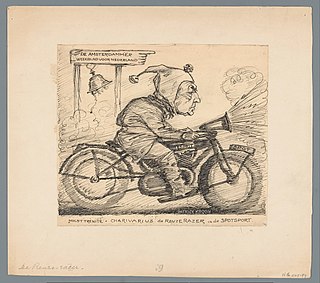
Gerard Nolst Trenité, was a Dutch observer of English.
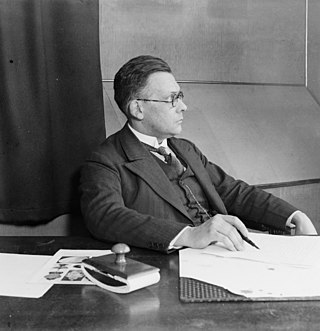
Jan Pieter Marie Laurens de Vries was a Dutch philologist, linguist, religious studies scholar, folklorist, educator, writer, editor and public official who specialized in Germanic studies.
In Germanic mythology, Myrkviðr is the name of several European forests.

Hendrik Pieter Nicolaas Muller was a Dutch entrepreneur, diplomat, and publicist who started his career as a businessman, trading with East and West Africa. In his mid-twenties he travelled to Zanzibar, Mozambique, and South Africa for business purposes, but showed himself a keen ethnographer as well.

Willem Johannes Leyds was a Dutch lawyer and statesman who served as state attorney and state secretary of the South African Republic. From 1898 to 1902, during the crucial period of the Second Boer War, he was the Republic's special envoy and minister plenipotentiary in Brussels, accredited to several European states.
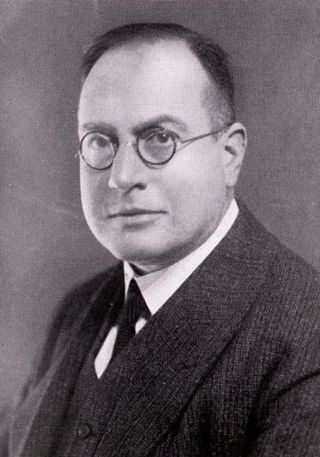
Anton Gerard van Hamel was a Dutch scholar, best known for his contributions to Celtic and Germanic studies, especially those relating to literature, linguistics, philology and mythology. He is not to be confused with his uncle, Anton Gerard van Hamel, who was a theologian, professor of French and editor of De Gids.
Hafgufa is a legendary massive sea monster, purported to inhabit Iceland's waters and southward towards Helluland. When the creature remains stationary it is mistaken for an island.
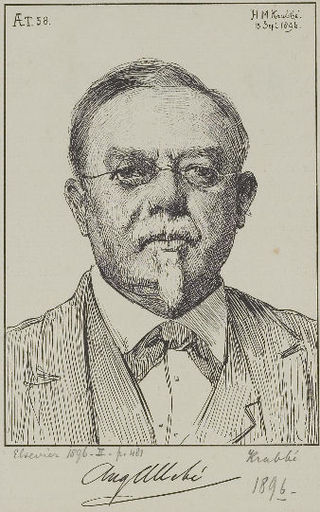
August Allebé was an artist and teacher from the Northern Netherlands. His early paintings were in a romantic style, but in his later work he was an exponent of realism and impressionism. He was a major initiator and promoter of Amsterdam Impressionism, the artist's association St. Lucas, and the movement of the Amsterdamse Joffers. Amsterdam Impressionism – sometimes referred to by art historians as the School of Allebé – was the counterflow to the very strong Hague School in the movement of Dutch Impressionism. As a professor at the Royal Academy of Amsterdam he fostered a cosmopolitan attitude toward art and the promotion and motivation of his students, and provided a significant stimulus to developments in modern art.

Andreas Heusler was a Swiss philologist who specialized in Germanic studies. He was a Professor of Germanic Philology at the University of Berlin and a renowned authority on early Germanic literature.
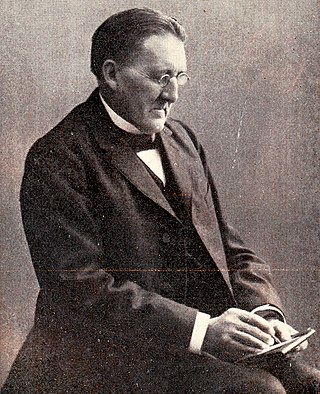
Jacob Cornelis van Slee (1841–1929) was a Dutch Reformed clergyman and scholar. He was the author of a study of the Windesheim Congregation, De kloostervereeniging van Windesheim, and between 1875 and 1900 contributed articles on theologians to the Allgemeine Deutsche Biographie.
Damusta saga is a medieval Icelandic romance saga. It is noted for its inventive engagement with Continental romance-writing traditions.

Carel Hendrik Theodoor Bussemaker was a Dutch historian who held chairs in history at the University of Groningen and the University of Leiden.
Johannes Andreas Jolles, known as André Jolles was a Dutch-German art historian, literary critic and linguist who was affiliated with the Nazi Party. He is best known for his work Simple Forms.
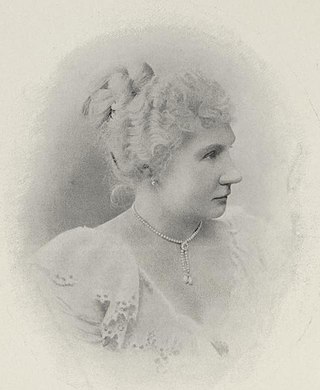
Johanna Maria Cornelia Bertha Waszklewicz-van Schilfgaarde was a Dutch peace activist and journalist.
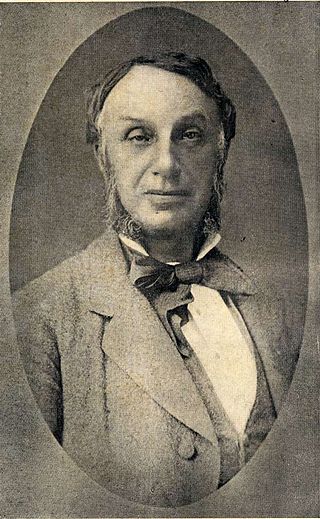
Johannes van Vloten was a Dutch scholar, literary historian and philosopher. He is known as a rediscoverer of Spinoza's work and a freethinker in his tradition, with a great deal of involvement in all kinds of social issues. Van Vloten was one of the founders of modern humanism.